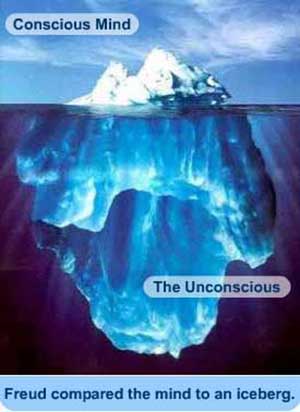

This component of personality acts as a reality guide. The ego isn't instantly mature but develops over the first three years of life. The economic, or, if you prefer, the quantitative factor, which is so closely bound up with the pleasure dominates all its processes." As quoted by Freud,"Naturally, the id knows no values, no good, and evil, no morality. Nevertheless, the id is still responsible for urges of aggression and selfish desires that are often unacceptable in the real world. The id is present in all ages, though it later becomes better managed. These survival instincts are present from birth, and they serve to protect and ensure the prosperity of the individual. If they are ill or uncomfortable, they will cry until they feel better. If the baby is hungry, they will cry until they are fed. The id runs on the pleasure principle, meaning that it avoids discomfort at all costs. This includes needs such as hunger, thirst, and comfort. It is the part of the psyche that does not care about consequences nor long-term fulfillment it merely demands instant gratification. It is the primal and instinctual component, and it is entirely unconscious. In Freud's theory of id, psychology says that everybody is born with the id. The id is the first component of personality. These components develop over the first several years of a person's life. In this theory, a person's nature is explained as the synergy between the id, ego, and superego. This new approach to understanding the unconscious mind, uncovering repressed memories, and helping his patients find relief was coined psychoanalysis.īelieving that much of the personality was composed of subconscious systems, Freud went on to develop his theory on human personality.
#The id the ego and the superego free
Free association was used to explore and understand the unconscious mind. Letting their mind wander while actively thinking out loud is known as free association. Soon after, however, Freud abandoned practicing hypnosis and instead began having his patients simply discuss their thought processes, free from any judgment.įreud found that his patients received greater relief when they openly talked about whatever was on their mind at the time. It is here that he began using hypnosis in his work as an attempt to help his patients explore their memories and cope with their struggles.

In 1886, Freud began his private psychiatry practice. A year later, Freud started working as a doctor at Vienna General Hospital in 1882.

At just 17 years old, he went to medical school at the University of Vienna with a focus in neurology, later graduating with a medical degree in 1881. Simply put, personality is the sum of the id, the ego, and the superego and their interactions with each other both consciously and unconsciously.īorn in Moravia, later becoming the Czech Republic, Freud entered the world in 1856. Freud believed that the conscious level of personality was only the tip of the iceberg. In Freud's theory of id psychology, he states that most of our nature is not from a conscious level, but instead on a subconscious level. In what is possibly his most important contribution, Freud explains that human personality is composed of three parts: the id, the ego, and the superego. Known for his theories on human development, sexuality, and the unconscious mind, not many others have contributed so much to the world of psychology. The father of psychoanalysis, Freud was a revolutionary in the field of psychology. Perhaps the most well-known psychologist to study the human psyche is Sigmund Freud. The human psyche is a compilation of conscious and unconscious systems that affect everything that we do. Have you ever wondered why you are the way that you are? What exactly defines somebody's personality? People have been trying to understand the human psyche for thousands of years. Talk With A Board-Certified Psychology Expert.


 0 kommentar(er)
0 kommentar(er)
